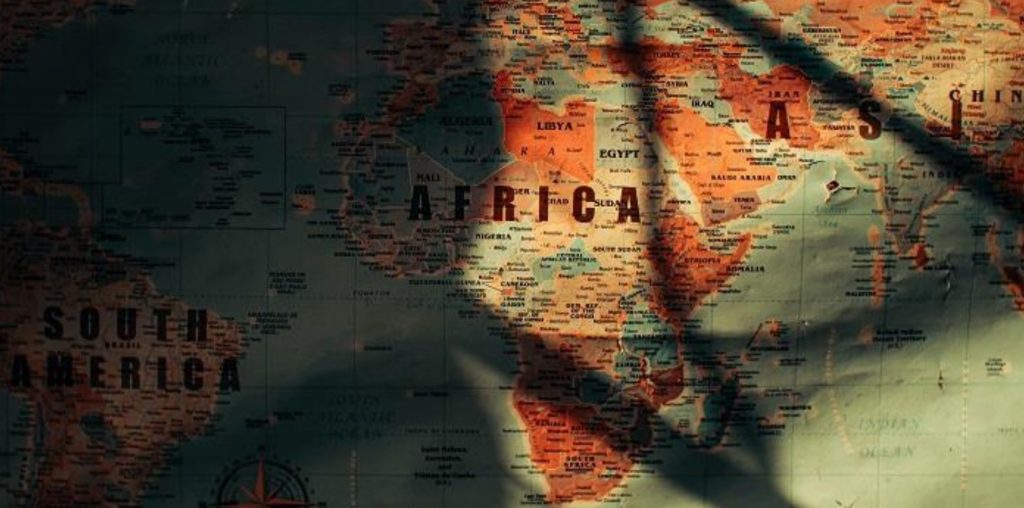
The Legacy of French Colonialism in Africa: Impact Beyond History
Written By; Furkan Etik – Oct 12, 2023
France’s historical involvement in Africa has left a lasting impact, extending far beyond the pages of history books. Throughout history, Africa has been a coveted region for colonial powers, with France playing a particularly influential role. The continent’s abundant natural resources have consistently attracted France’s attention, yet this interest has come at a steep cost to Africa’s people and its developmental prospects.
France’s colonial aspirations in Africa can be traced back to the mid-19th century when the French Empire set its sights on expanding its territories to include African lands. By the late 19th century, France had established control over northern regions such as Algeria and Tunisia, marking the initial steps in its broader colonial agenda.
Over the course of the late 19th and early 20th centuries, France continued its expansion, occupying numerous regions, including present-day Mali, Senegal, Ivory Coast, and many others. While territorial acquisition was a clear objective, French colonialists were equally interested in dominating Africa’s vast natural resources. Africa’s riches, including precious minerals like gold and diamonds, rubber, and agricultural products like cocoa, proved irresistible to French exploiters. Under the grip of French colonial rule, these resources were consolidated and shipped off to France.
However, the exploitation extended well beyond the realm of natural resources. The French colonial administration subjected local populations to forced labor, effectively treating them as slave laborers. Faced with labor shortages, French companies sought to reduce costs by exploiting the local population. This egregious violation of human rights resulted in harsh working conditions and inhumane treatment for countless individuals.
Moreover, the imposition of French language and culture had profound cultural consequences in the region. The dominance of French culture led to the suppression of local cultures and the erosion of indigenous identities. The education system became a conduit for French culture, causing local communities to lose touch with their cultural heritage. This erosion had a detrimental impact on Africa’s cultural diversity and the vitality of local communities. During this period, Africa’s resources flowed to France, leading to the devastation of local economies.
Instead of nurturing local production, imports were promoted, significantly undermining local producers. While African economies appeared to thrive under the control of French companies, the benefits seldom reached the local populations, leaving Africa as a continent deeply scarred by French colonialism.The post-World War II era witnessed the emergence of independence movements in Africa.
Local leaders in French colonial territories began advocating for independence, ultimately leading to the liberation of many countries. However, France sought to maintain economic ties with these newly independent nations to protect its interests. In countries like Mali and Ivory Coast, economic dependence on France persisted even after gaining independence.
Furthermore, France upheld “special relationships” with these independent African countries, further entrenching economic reliance. The introduction of the CFA franc currency system enabled France to maintain control over these countries’ economies by preventing them from managing their own currency.
Today, the enduring consequences of France’s exploitation in Africa continue to be felt. Many African nations remain economically dependent on France, lacking the autonomy to manage their own resources. Additionally, political instability and widespread poverty in these countries can be attributed, in part, to the enduring legacy of French exploitation.
France’s historical role in Africa presents an opportunity to forge a more equitable future by acknowledging past wrongs. Today, African nations are diligently working to overcome the enduring effects of historical exploitation and achieve independence and development. France has the chance to support this process by fostering fair economic relationships and granting Africa control over its resources. However, this can only be accomplished through a recognition of past mistakes and a commitment to a more open-minded approach.
France’s exploitation in Africa has left an indelible mark on the continent, affecting not only its economic landscape but also its social, cultural, and political fabric. Today, African nations are determined to heal the wounds of this historical exploitation. With the support of the international community and a shared understanding of history, this endeavor can be made more effective. France must acknowledge its historical responsibility towards Africa and take meaningful steps towards a more equitable future.

Furkan Etik is an undergraduate student at the Department of International Relations at Bursa
Uludağ University. He is a member of the management team of his department's professional
community, the International Relations Society. His main areas of interest are Europe and the
Turkish World.